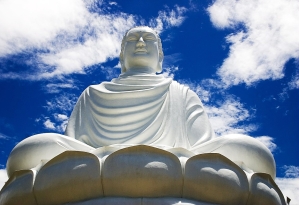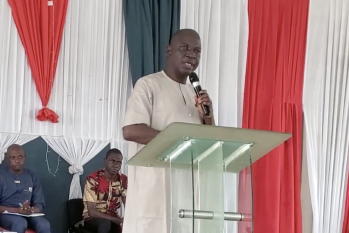
Police in Vietnam on Monday (Aug. 11) cut electricity at a home where a Catholic Mass was underway and raided the service, advocacy group Christian Solidarity Worldwide (CSW) reported.
In northern Vietnam’s Thái Nguyn Province, about 20 Catholics were celebrating Mass at the home of a parishioner in Bình Khang village, Đại Từ commune when police cut off electricity without prior warning, the group reported. Officers and local officials then entered and demanded a stop to the service.
Officers brought three people to the local police station – the leader of the local Catholic community, the homeowner and a member of the group meeting at the home, according to the parish priest’s Facebook, according to a report by Radio Free Asia.
It was unclear why local authorities disrupted the service, but officials in Vietnam can decline to authorize religious activity if participants come from outside their jurisdiction. On a video on the priest’s Facebook account, a local official’s voice is heard questioning people about their place of origin.
“However, other voices, allegedly identified as those of local Catholics, can be heard claiming they are local residents,” CSW stated, adding that officers prevented the priest from accessing the site where parishioners were detained and questioned.
“The official Facebook account of the Bac Ninh Diocese, which oversees the area where the incident occurred, reposted the video, which garnered 60,000 views within two hours and was shared by hundreds of people,” CSW stated.
Vietnam was not included in the U.S. State Department’s most recent (Dec. 29, 2023) designation of Countries of Particular Concern (CPS) for egregious religious freedom violations, but it was included on its Special Watch List along with Algeria, Azerbaijan, the Central African Republic and Comoros.
The U.S. government in 2004 had designated Vietnam as a CPC for tolerating or engaging in religious rights violations, and although it has been removed since then, religious freedom has deteriorated, according to a report last September by the U.S. Commission on International Religious Freedom (UCIRF).
Vietnam met nearly all conditions of a 2005 U.S. agreement, but “inconsistencies in the application of these policies mean that religious freedom conditions have broadly deteriorated,” the USCIRF report states. “When Vietnam passed a new Law on Belief and Religion in 2016, stakeholders observed that while the law does include language on rights to freedom of religion and belief, it further entrenches the state’s firm grip on defining allowable practice and stifling dissent.”
In 2022, the State Department placed Vietnam on its Special Watch List for the first time and repeated the designation in 2023.
Sanctions are among the actions the International Religious Freedom Act of 1998 calls on U.S. administrations to impose on CPCs, but Vietnam is among those countries that have been granted presidential waivers from sanctions. Vietnam’s control over religious registration processes and its persecution of unregistered groups have led to continued religious rights violations, according to the report.
“Although Vietnam is a highly religiously diverse society, state authorities have frequently opposed the registration of minority religious organizations, often for perceived political reasons,” the USCIRF report states.
Groups enduring frequent legal and administrative abuses include Montagnard and Hmong Protestants, Cao Dai, Hoa Hao and Unified Buddhists, Duong Van Minh, and the Falun Gong, the report states. Lack of oversight on local authorities has created significant imbalances in how Vietnam has applied laws and regulations on religion and belief to these groups.
“Even among registered groups, state authorities have near total control over the approval and content of religious activities, gatherings, and appointment of leaders,” USCIRF reports. “Dissidents, including religious leaders, have faced harassment, physical abuse, imprisonment, and surveillance. The government’s interference has extended to the confiscation of property, closure of religious institutions, and censorship of religious materials.”
Vietnam ranked 44th on Open Doors’ 2025 World Watch List (WWL) of the countries where it is most difficult to be a Christian, up from 35th the prior year.
“Local authorities break up church services and detain, threaten, fine and sometimes imprison church leaders, ordering them not to speak about Jesus anymore,” the WWL report stated. “Christians are also targeted for arrest and abduction, causing many to flee their villages.”
Converts from ethnic-animist religions can have their homes destroyed and face expulsion from their communities, and women and girls can face trafficking, sexual assault and forced marriage or, if married, threats of divorce, the report noted.
Vietnam improved nine places on the 2025 World Watch List this year as there was a decrease in violence and fewer Christians detained and sentenced for faith-related reasons, but there has been increased oppression of unregistered churches, according to the WWL report.
“Converts from Buddhist or traditional religious backgrounds face the greatest persecution from their own communities, and also from local authorities who are already suspicious of these minority people groups,” it stated.





